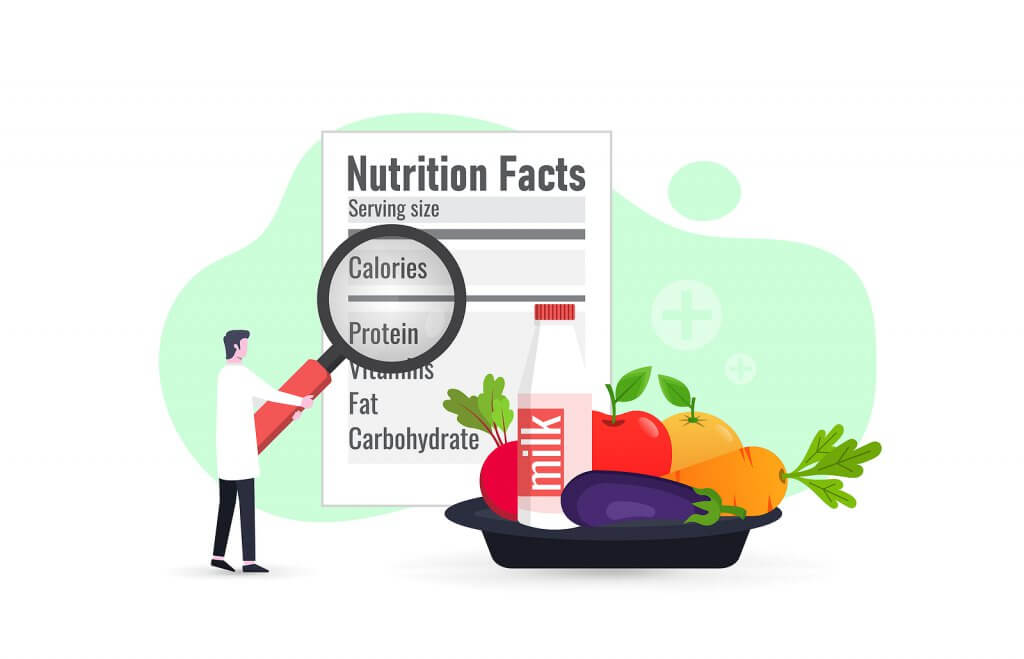
Living with food allergies is a daily balancing act. It includes a lot of vigilance and anxiety. It’s a life filled with label-reading, meticulous meal planning, and emergency preparation. The fear of a severe allergic reaction can be constant. Indeed, it can shadow every meal, snack, and social event. Advocating for you or your child’s safety and educating others. Yet, it’s also a journey of strength, resilience, learning, and courage.
Why Food Allergy Anxiety?
There are times when living with food allergies can be simply terrifying. After an initial diagnosis, your world can feel upside down. You struggle to determine what is and is not safe. Following an anaphylactic reaction, many individuals and parents feel shaken to the core. Other times there can be an ongoing panic about managing food allergies. Everything can feel dangerous. You watch your world or your loved one’s world shrink.
As a Psychologist, Trauma Therapist, and Food Allergy Parent, I got tired of hearing about how other therapists were responding to concerns about food allergies. Repeatedly, I would hear about therapists dismissing the concerns of clients from the food allergy community. The misunderstandings were multifold. Common treatment methods were not the right fit. In fact, without proper education, these methods can be dangerous. This was unacceptable.
Meet the Branchburg Food Allergy Team
All therapists who join the Brave Minds team learn about food allergies. This is an important part of their onboarding process. They learn to use their unique skills to provide the best possible care. They make a commitment to treat food allergy clients with the care they deserve.
Meet Lisa

Meet Lisa Weiss, LCSW. Lisa is an experienced trauma and anxiety therapist. She specializes in working with children, teens, and adults facing the challenges of food allergy anxiety and trauma. With a deep understanding of the emotional toll of food allergies, Lisa offers a unique perspective. She has described her journey of living unapologetically with food allergies. Her personal experiences make her highly relatable. Living with allergies, she understands the complex web of emotions that can accompany food allergies. Furthermore, Lisa has expertise in trauma therapy and training in EMDR. This has allowed her to assist her clients in moving past the terror of an anaphylactic reaction.
Meet Megan

Meet Megan Herelle, LAMFT. Megan is a dedicated family therapist committed to guiding children, teenagers, and adults through the unique challenges of food allergy anxiety. Megan brings experiences in the food allergy world from her previous work. Moreover, she is passionate about family dynamics influenced by food allergies. Her knowledge and enthusiasm make her an excellent choice for those looking to address the emotional and relational aspects of food allergies. She is excited to help her clients and parents build confidence in their abilities to thrive with food allergies. Megan is supervised by Lauren Grossbach, LMFT who has been working with food allergy families for over half a decade.
Meet Linda

Meet Linda Farag, LSW. Linda is a compassionate trauma and anxiety therapist who works with children, teenagers, and adults. As a person experienced with chronic illness, she is passionate about supporting others with chronic medical conditions. Undoubtedly the ongoing management and recurring anxiety that can come with conditions including food allergies can be overwhelming. At times it can make life feel small and the world scary. Linda empowers her clients to challenge themselves to live fulfilling and safe lives while managing food allergies. Her therapeutic approach is grounded in Trauma-focused Cognitive Behavioral Therapy and Gradual Exposure Therapy. Linda is supervised by Jessica Pizzo, LCSW who has been working with food allergies and trauma for over half a decade.
Meet Fawn

Meet Fawn McNeil-Haber, PhD. Dr. Fawn is the clinical director and psychologist at Brave Minds Psychological Services. She put together a training program that couples knowledge of the food allergy world with clinical skills in each therapist’s areas of expertise. This is followed by the support of our team to put the training into action. Our teen therapists support their clients through the incredible transitions of adolescents. Similarly, our child therapists know how to use play and fun to inspire little ones to challenge their fears. The family therapists understand that parenting, co-parenting, and extended family interactions are crucial when it comes to mitigating food allergy stress. Finally, trauma therapists are able to diagnose and treat the PTSD that can come from a food allergy reaction.
We’ve Heard of OIT and TIP. We know what an oral food challenge is and why it’s nerve-wracking.
How does Treatment for Food Allergy Anxiety Work?
Food allergy anxiety is an often under-acknowledged aspect of living with food allergies. The fear of allergic reactions is present. There is a need for constant vigilance. Finally, the challenges of social interactions can take a significant emotional toll. Therapy can play a pivotal role in anxiety management.
Here’s how therapy can assist:
1. Identifying Triggers:
Therapy sessions provide a safe space to explore fears and triggers. This could be family gatherings. Oral food challenges at home. Even reminders of a previous anaphylactic reaction. Indeed, physical signs of anxiety can trigger concern that a reaction is happening. By identifying and addressing triggers, emotional balance can be gained. You can also become better able to decipher anxiety vs a food allergy reaction.
2. Education:
Therapy can offer valuable education about anxiety. Low-level anxiety can help you make reasonable food allergy decisions. The body communicates the need for food allergy management with anxiety. Furthermore, developmental milestones can impact food allergy management. Parents can learn what to look out for as their child achieves certain milestones. Similarly, adults can understand how life changes can interact with food allergy anxiety.
Avoidance is a great tool for Food Allergy Management. Yet it is a Poor Tool for Anxiety Management
3. Coping Strategies:

Therapists can teach various coping strategies. These might include relaxation techniques and mindfulness. These strategies can help bring down baseline anxiety. Then when making food allergy decisions, overwhelming stress is lower.
4. Exposure Therapy:
For severe cases, exposure therapy may be helpful. Gradually exposure introduces fears in a controlled and safe environment. How do we determine what is safe? Safe food allergy situations are identified through collaboration. Specifically, the person with food allergies and their allergist determines what situations can be handled safely. Your therapist should never minimize situations that you feel are dangerous. Together you determine situations where anxiety is fueling avoidance. Food allergy safety should fuel avoidance. Over time, you come to identify the difference. Then you can adjust your behavior.
5. Family Counseling:
Food allergies affect not only the person but their entire family. For this reason, family counseling can help parents and siblings. It can increase the understanding of the emotional impact of food allergies. Everyone can learn how to provide effective support. Moreover, many family members experience their own anxiety and fears. They worry about what could happen to the food allergic person. Family therapy can also help when family members or extended family are on different pages about how food allergies should be managed.
Trauma/PTSD and Food Allergy Anxiety
Food allergy trauma can occur in many situations. Experiencing a severe allergic reaction is traumatic. Witnessing a loved one in distress due to an allergic reaction can also be traumatic. Trauma or Post Traumatic Stress Disorder can manifest as:
- Flashbacks
- Nightmares
- Intrusive thoughts
- Extreme anxiety related to food.
Indeed, therapists who specialize in trauma can provide the necessary support for dealing with food allergy-related trauma. Here’s how therapy can assist:
1. Processing Traumatic Events:
Therapy allows you to process and make sense of traumatic experiences. It provides a safe space and method to understand the event. Furthermore, you can uncover the emotional impact it has had.
2. Cognitive Restructuring:
Therapists use cognitive-behavioral techniques to help reframe negative thought patterns and identify irrational fears. Unfortunately, without understanding food allergies, many therapists struggle. Specifically, they don’t understand that many fears and behaviors are quite rational. A food allergy therapist can help those experiencing heightened anxiety after a traumatic allergic reaction.
3. Desensitization:
In cases of severe food allergy trauma, desensitization techniques can be helpful. They are employed to gradually introduce situations in a controlled and therapeutic environment. This process can help reduce trauma-related anxiety.
4. EMDR Therapy:
Eye Movement Desensitization and Reprocessing (EMDR) is a specialized therapy for trauma. It can help process traumatic memories and reduce their emotional impact.
Managing Stress and Anxiety
1. Mindfulness and Relaxation Techniques:
Therapy often incorporates mindfulness and relaxation techniques to help manage stress and anxiety. These techniques can be powerful tools for those with food allergies. They encourage staying present in the moment. Anticipatory anxiety is reduced.

2. Stress Reduction Strategies:
Therapists can work to develop personalized stress reduction strategies. These may include lifestyle adjustments. For example, regular exercise and adequate sleep, all contribute to emotional well-being.
3. Collaboration with Allergists:
Therapists who specialize in food allergies and anxiety work with your allergist to understand your allergen. This makes it easy to work together with your therapist to establish what safety means. Then you can determine how to manage a situation to maximize safety. Food allergy management tools to maximize safety may include:
- Assertiveness
- Problem-solving
- Family Communication
- Advocacy training
- Considering where human error can impact food safety
- Balancing competing needs and more
4. Advocacy with Schools:
Therapists can help develop advocacy skills. This is important for children and adolescents. It encourages them to assert their needs and make safe choices. Furthermore, it can help them communicate with appropriate adults in a bullying situation. Finally, parents find that they must become overnight advocates. They are educating family, friends, and the school. Therapists can assist with this.
Start Working With an Anxiety Therapist in Branchburg, NJ
Living with food allergies can be emotionally challenging. In some cases, it can be traumatic. Therapy offers a powerful path to healing. Through education, coping strategies, and emotional support, therapy can provide the tools. These tools can help you navigate the complexities of food allergies and regain control over your life. If you or a loved one is struggling with food allergy anxiety or trauma, don’t hesitate to seek professional help. Our team of caring therapists is happy to offer support in Branchburg, Scotch Plains, and across the state. Start your therapy journey by following these steps:
- Contact us at Brave Minds Psychological Services.
- Speak with one of our counselors.
- Start healing from the challenges of food allergies!
Other Services Offered by Brave Minds Psychological Services
Our team is happy to offer a variety of services in addition to support for food allergies and anxiety. We know that you may experience concerns with more than one mental health concern, which is why we are happy to offer a variety of services. We provide EMDR Therapy, couples counseling, postpartum counseling, and birth trauma therapy. In addition, we also offer therapy for trauma and anxiety. Our caring counselors provide mental health services for adults, teens, and children. We offer treatment for teen anxiety, social phobia in teens, child sexual abuse, child anxiety, and more. Prefer building a support network with group therapy? Our therapists also offer several options for group therapy. Our services are offered in person at our Scotch Plains, NJ office and through online therapy in New Jersey.



